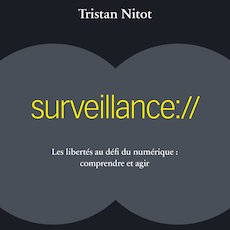Some reader tells me that, according to a ZDNet UK/Silicon.com article, "IE7: Not just for XP users". Wow, what a lovely title! So is IE7 going to be available for Windows 2000 users (most corporations did not upgrade to XP) and XP users that do not want SP2 which comes with DRM?
Actually, no. The IE Blog writes:
We currently plan to make IE7 available for Windows XP SP2 and later. This will therefore include availability not only for the 32bit version of Windows XP SP2 but also for Windows XP Professional x64 Edition and Windows Server 2003 SP1 both of which are due to be released soon. As Dean commented in his original IE7 post on this blog we have heard the requests for support of Windows 2000 but have nothing to announce at this time.
So companies who want a more secure and modern browser can start migrating to Firefox.
But, what about Outlook Express? The IEBlog has some info about it too, and it's also good news for the our beloved Thunderbird:
The Outlook Express team is hard at work on great functionality for the new version of Outlook Express, which is shipping with the next release of Windows.
This actually reminds me of another article I read on ZDNet UK, Browser war - Episode II, where the journalist asked me about deployments in the enterprise:
The Mozilla Foundation stresses that the real battle isn't between browsers, but between two types of technology -- Microsoft's, which is tied to Internet Explorer, and standards-based technology, which can be used with Firefox or any other standards-compliant application. In theory, this means that sites and Web applications that work with Firefox should behave the same way with Opera, Safari or other Mozilla browsers (like the Mozilla suite and Camino), and switching should no longer be an issue. "The old world is about IE 5.5 and Microsoft proprietary things like ActiveX. The new world is about W3C standards," says Tristan Nitot, president and founder of Mozilla Europe. Testing internal applications for standards instead of for a particular browser may seem like extra trouble for companies, but in the long run it will reduce security risks and save money, Nitot says.
Actually, the real question is "does it make sense for a company like Microsoft to spend huge amounts of money in order to develop software that they cannot sell?"
Developing IE costs a lot of money, because Microsoft does not leverage the Open Source model.
Initially, there was no sustainable business model for Microsoft to offer IE for free, but to "cut Netscape's air supply". Netscape is now dead, and there is still no business model for Microsoft. Furthermore, continuing IE development is not going to cut Mozilla's air supply.
Considering this, it is not safe to bet that Microsoft is going to enhance IE over time.
Developing for standards (while remaining compatible with IE[1]) is the safest way to go. Whoever is going to win the browser war does not matter anymore, as applications will continue to work in IE, Opera, Safari and Firefox. This is the kind of decisions IT managers should do, instead of betting the future of their applications on Microsoft's agenda.
I suggest that you read this CNet article. I particularly liked the conclusion:
The fact that Firefox now can't rest on its laurels the way IE6 did for five long years is a good thing. And as much as we don't want monopolies to dominate the industry, the last thing consumers need is the lack of competition among the vendors. Game on!
So there will be competition, and everybody but Microsoft will benefit from it. In the mean time, everybody should be sticking to the W3C standards, to make sure that the current investments in today's content and applications will display in all modern browsers, and in IE 6 and 7, too...
Notes
[1] it is to be reminded that developing standards-conformant application is very doable with IE6, which implements a not perfect but decent "standards-mode". See CSS Enhancements in Internet Explorer 6 for more details.





